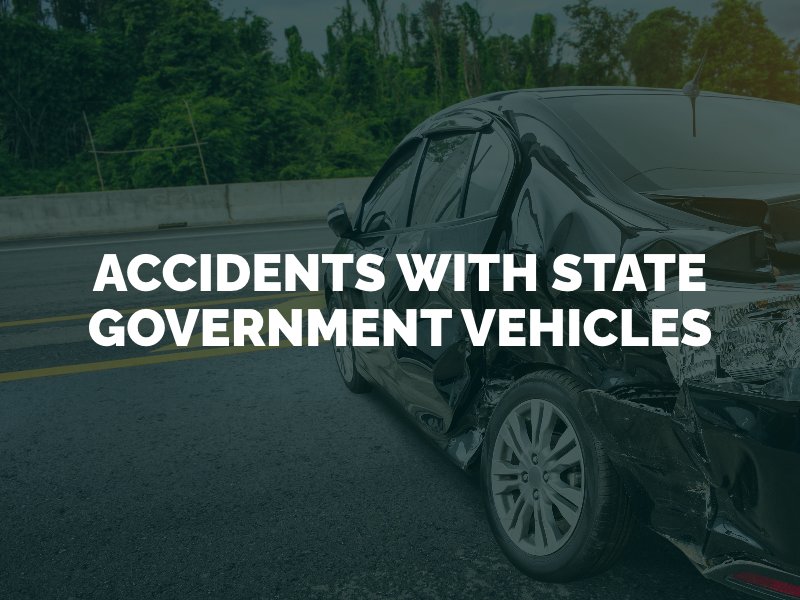Hundreds of government vehicles owned by the state traverse the roads of Colorado each day. Police cars, fire trucks, ambulances, other emergency vehicles and government agents share the road with civilians in both marked and unmarked vehicles. While these vehicles are essential for protecting the safety of citizens and providing public services, they can make it difficult to understand liability after a car accident involving one of them.

A car accident or personal injury claim involving a state government vehicle will deal with the legal doctrine of sovereign immunity. This rule was originally created in British common law to protect the King from being held liable (legally and financially responsible) for wrongful or negligent acts. Today, in the U.S., the sovereign immunity rule applies to the federal and state government. It prevents the state government in Colorado from having to pay for many types of torts.
However, most states have countered the sovereign immunity rule with acts of their own to protect civilians. The Colorado Governmental Immunity Act waives the sovereign immunity rule in claims that meet certain criteria. Primarily, the state government or one of its representatives must be found legally liable based on the doctrine of negligence. This means they must have failed to act with reasonable care. In general, a claim based on negligence can be brought against the state government in Colorado by an injured civilian after a car accident.
The Governmental Immunity Act covers the operation of a motor vehicle “owned or leased by a public entity or public employee while in the course of employment.” In other words, if a state government employee or agent behaves negligently and causes a car accident while on duty, the government can be held liable for injuries and property damage caused. This exception to sovereign immunity aims to protect the public from harm caused by negligent or careless government agents.
Someone who is driving a vehicle in the course of employment for the Colorado government should exercise a duty of reasonable care. This includes paramedics or emergency medical technicians that are responding to an emergency in an ambulance, as well as firefighters responding to a fire. Even in a state of emergency, drivers should practice reasonable care to prevent car accidents. Failure to exercise due care can create liability for the government.
The rule of vicarious liability states that an employer or supervisory party can be held liable for the negligent actions of those for whom they are responsible, such as employees. This rule can apply to a car accident case involving a state government vehicle, and hold the government agency vicariously liable for the negligence of one of its workers. It is important to know, however, that claims against the government in Colorado have special rules compared to typical Denver personal injury cases.
The Colorado Governmental Immunity Act has specific rules for bringing a tort claim against a governmental body. One of the most important is the notice requirement. In Colorado, a plaintiff or filing party must mail a special notice before filing a lawsuit against a government agency. This notice must be filed no later than 180 days from the date that the car accident occurred or the injury was discovered. This deadline is significantly shorter than Colorado’s standard statute of limitations on personal injury claims, which is two years.
After the notice has been filed, the plaintiff must wait an additional 90 days to receive a response from the defendant before being permitted to file a lawsuit. In addition to the notice requirement, claims brought against the state government must contend with a damage cap, or a limit on the amount of financial compensation available to the plaintiff. Currently, the cap in Colorado is set at $350,000 for a single victim and $990,000 for multiple victims.
Contact an attorney at Fang Law Firm for assistance with the complicated claims filing process after a car accident involving a state government vehicle.